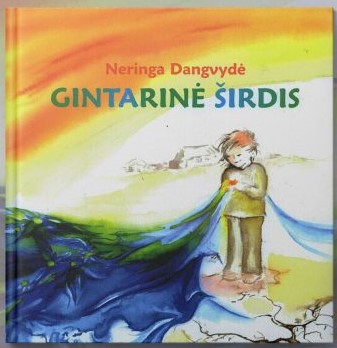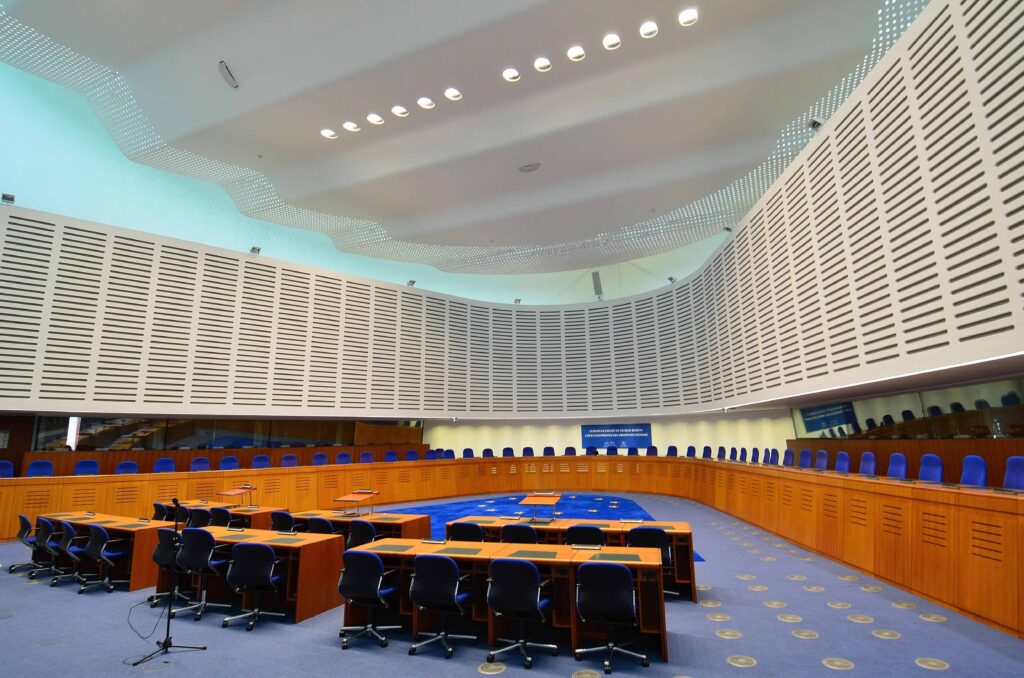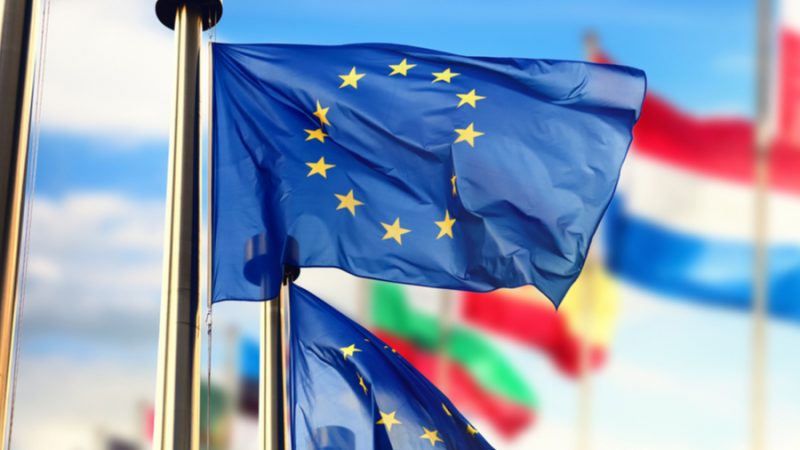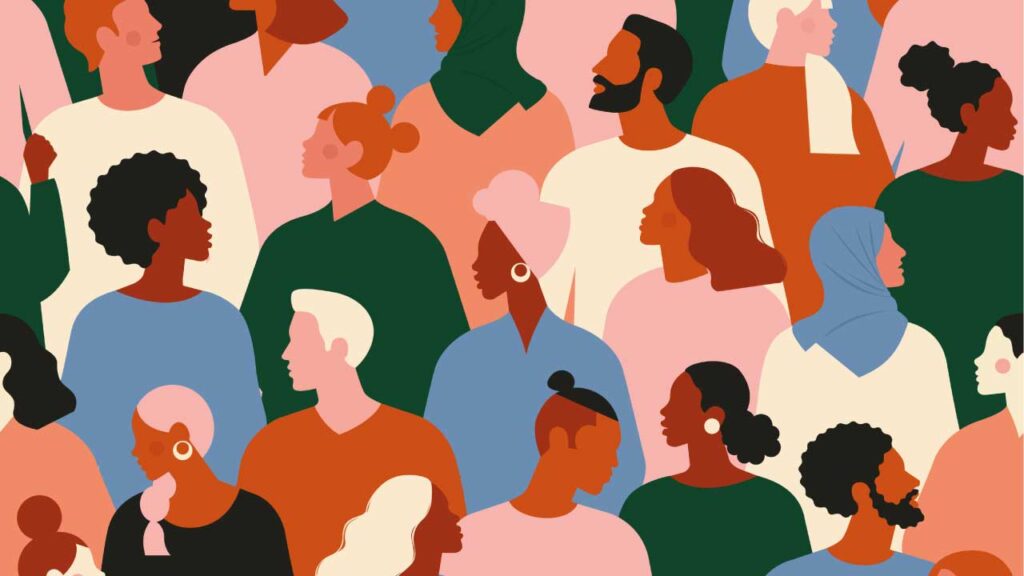Lithuania
Categories Score
The full bar chart stands for 100%, and is filled by the country category score. The colour display uses the traffic light palette, with Green representing a score closer to 100% and Red a score closer to 0%.
ASYLUM
This category looks into laws that expressly include SOGISC as a qualification criteria for seeking asylum. We also take into account other legislation, policies, instruction or positive measures by state actors that are related to asylum addressing the needs and rights of LGBTI asylum seekers and refugees.
Criteria Compliance Ratio
Each pie charts stands for a category and is divided in slices by criteria. When a country complies with a criteria – fully or in some regions – the slice is coloured.
Keep in mind the criteria have different weighting factor within a category; for example, the criteria Prohibition of medical intervention without informed consent (intersex) stands for half (2.5%) of the INTERSEX BODILY INTEGRITY category weighting factor (5%). Meaning that even if a country can only comply with this specific criteria within the category (1/4 total criteria) the category scores 50%.
More information on the categories and criteria weighting factors here.
Category & Criteria Table
The table lists detailed information and insights on legislation supporting each criterion status. Please use the filters for in-depth analysis.
n/a = not applicable, meaning the criteria didn’t exist in the previous Rainbow Map edition (PROGRESSION column)
- Complies
- Applicable in some regions only
- Does not Comply
RECOMMENDATIONS
In order to improve the legal and policy situation of LGBTI people in Lithuania, ILGA-Europe recommend:
- Adopting registered partnership legislation to recognise and protect same-sex couples.
- Removing all obstacles limiting the freedom of expression of LGBTI people and the communication of LGBTI-related information at national and local levels.
- Adopting a fair, transparent legal framework for legal gender recognition, in line with the ECtHR decision in L. v. Lithuania (2007), based on a process of self-determination and free from abusive requirements (such as GID/medical diagnosis, medical intervention, compulsory divorce or age restriction).
- Introducing laws on asylum that contain express mention of all SOGIESC (sexual orientation, gender identity, gender expression, sex characteristics) grounds.
Annual Review of Lithuania
In our Annual Review of the Human Rights Situation of LGBTI People in Europe and Central Asia, we examine the advances made and provide concrete examples of on-the-ground situations at national level country-by-country in the 12 months from January to December 2024.
Read our Annual Review of Lithuania below for more details and stories behind the Rainbow Map. You can also download the Annual Review chapter (.pdf) covering Lithuania.
-
In March, the Lithuanian Ministry of Justice hosted an event on the needs of hate crime victims, Organised by the National LGBT Rights Organisation (LGL). The event focused on examining the needs of hate crime victims, highlighting the systemic lack of existing targeted LGBTI victim support measures in Lithuania.
-
Several LGBTI asylum seekers from Cameroon were granted protection after enduring a lengthy four-year wait for a final decision. However, civil society organisations continue to report ongoing concerns regarding the dire conditions in camps, the prolonged nature of asylum procedures, and the persistent fear of deportation amongst asylum seekers.
Psychologist Tomas Kelpša was found guilty by the Vilnius Regional District Court of coercing asylum seekers into sexual acts by threatening to deny their asylum applications.
-
In June, a Lithuanian court postponed the case against former MP Petras Gražulis, known for his anti-LGBTI rhetoric, over charges of publicly ridiculing and showing contempt for individuals based on their sexual orientation. The court instructed the prosecutor to seek permission from the Central Electoral Commission (VRK) to proceed with the prosecution before Gražulis assumed his mandate as a Member of the European Parliament (MEP), which would grant him legal immunity. Following his election to the European Parliament in mid-July, the Vilnius Regional Court in early September directed the prosecutor to request the European Parliament to lift Gražulis’s legal immunity, allowing the case to proceed.
-
A participant in the Lithuanian Pride reported being attacked with pepper spray at Vingis Park after the festival’s concert.
The police terminated a pre-trial investigation into one of several alleged assaults, where neighbours, including a minor, verbally and physically attacked a same-sex couple. This incident was part of a broader pattern of ongoing harassment that had taken place over an extended period.
The European Court of Human Rights (ECtHR) accepted to hear a petition for refusal to investigate a hate-motivated verbal assault in the case of Svirplys & Latvys v Lithuania, where two men were followed, harassed with homophobic slurs and threatened after being seen holding hands in public. The case was reopened in the Lithuanian court; however, the investigation does not include hate or bias motive and the perpetrator denies the facts of the case, including the use of homophobic slurs and threats.
-
In February, the Lithuanian government asked the Constitutional Court to review the constitutionality of a law banning the dissemination of information about same-sex relationships to minors. The Court began its hearing in early December. Later that month, the Constitutional Court ruled that Article 4(2)(16) of the Law on Protection of Minors Against Detrimental Effects of Public Information violates several provisions of the Constitution.
The Court determined that restricting information about different family models infringes upon minors’ rights to receive information and hinders their development into well-rounded individuals.
It empahsised that legislation cannot automatically deem information about various family structures and relationships as inappropriate for minors, as this contradicts the constitutional principles of equality, pluralism, and tolerance. The ruling concluded that the challenged regulation improperly limited the constitutional concept of family and failed to provide minors with objective information that would aid in forming a worldview aligned with constitutional values and human dignity.
In March, President Gitanas Nausėda appointed Laurynas Kasčiūnas, head of the Seimas Committee on National Security and Defence, as Defence Minister. The nomination came despite protest from over 20 human rights organisations denouncing Kasčiūnas views and opposition to human rights, particularly concerning the Istanbul Convention.
In April, Lithuania launched the state-funded project “More Effective Protection of LGBTI Rights by Strengthening Inter- Institutional Cooperation” (SV5-147), coordinated by the Lithuanian Gay League. Partnering with Kaunas University of Technology (KTU), the Seimas Ombudsmen’s Office, and Vilnius City Municipality, the project evaluates municipal public policies in sectors like education, healthcare, and social protection to assess their inclusivity for LGBTI people. Results were shared at the National Human Rights Forum in December.
-
In March, four same-sex couples filed a complaint with the ECtHR, seeking the registration of a civil partnership, the inclusion of a foreign marriage in Lithuania’s civil registry, and the recognition of a same-sex marriage that took place in the country.
In May, the Government made an appeal to the Constitutional Court requesting an evaluation of the constitutionality of the current legal regulations related to partnership institutions. This move is seen as a step towards potentially recognising same-sex partnerships in Lithuania. In June, the Constitutional Court accepted the request and will proceed with examining the matter to determine whether these provisions conflict with Lithuania’s Constitution. During the drafting of the new government’s programme, Gintautas Paluckas, the leader of the Nemunas Dawn party, communicated that the Partnership Law will not be in the government’s programme.
In November, Lithuania’s Civil Registry Department refused to register the marriage of a same-sex couple married in Belgium. The department cited a legal ban on same-sex marriage in Lithuania, stating that the marriage could not be included in the country’s records.
In December, the Vilnius District Court issued a historic ruling by recognising two mothers for a child born from a same-sex couple.
-
In October, members of the LGBTI community held a protest near the Lithuanian Parliament, voicing their frustration over the government’s ongoing failure to legalise same-sex partnerships.
Approximately 20-30 participants attended, carrying rainbow flags and posters to express their dissatisfaction with the absence of legal recognition for same-sex couples in Lithuania.
-
The Ministry of Health initiated training of healthcare professionals based on Health4LGBTI methodology.
In November, Aleksandras Alekseičikas-Kirinovas, a psychiatrist who previously claimed to have “treated” LGBTI people during the Soviet occupation and defended this practice in public interviews, was dismissed from the Vilnius City Mental Health Centre after the Lithuanian Bioethics Committee ruled that his statements breached professional ethics.
-
A Eurobarometer survey revealed that discrimination based on sexual orientation and gender identity, among other factors, remains high in Lithuania, though there are signs of improvement. Compared to 2019, resistance to working with LGBTI people has decreased from 37% to 33%. Nonetheless, the percentage of respondents expressing discontent over the possibility of their child having romantic relationships with LGBTI people remained high (57%).
A survey by the Lithuanian Centre for Social Sciences and the Diversity Development Group revealed that about half of Lithuanians would prefer not to live next to LGBTI people.
In April, Lithuania’s Savaitė TV program highlighted presidential candidates’ starkly differing views on LGBTI rights. Freedom Party candidates and some independents supported civil partnerships and broader definitions of family, while others, like Labour Party’s Andrius Mazuronis, upheld a traditional view of family as a union between a man and a woman.
-
Racialised LGBTI migrants consistently reported experiencing discrimination in rental housing situations.
-
In March, Vilnius City Municipality, Minister of Justice, Minister of Economy and Innovation, Seimas Ombudsperson Office, Estonia’s Gender Equality Commissioner, and numerous other entities supported a bid by LGL to host EuroPride 2027 in Vilnius.
In June, the Lithuanian Pride festival in Vilnius welcomed an estimated 20.000 attendees. The event featured the participation of writer Kristina Sabaliauskaitė, and Freedom Party members like Finance Minister Aušrinė Armonaitė. The Lithuanian Green Party and Vilnius Mayor Valdas Benkunskas also participated, with international guests and embassy representatives, such as the German Embassy.
On the International Day Against Homophobia, Biphobia, and Transphobia, foreign ambassadors in Lithuania issued a statement backing the LGBTI community and urging the Seimas to pass a civil unions bill.
The Equal Opportunities Promotion Action Plan for 2024-2026 included measures related to LGBTI rights but has been criticised for being fragmented and lacking long-term impact.
Seimas Ombudsperson Office led an inter-institutional discussion on LGBTI rights on 30 August, with representatives of major ministries, law enforcement and civil society.
-
Following the European Court of Justice’s ruling mandating that EU member states recognise name and gender changes made in other countries within the bloc, the Lithuanian Ministry of Justice announced plans to assess the necessity of updating national legislation. While Lithuania currently acknowledges name changes executed abroad, it does not have an administrative procedure in place for changing gender in civil status records, necessitating a court order instead. Ministry spokesperson Paulius Žeimys indicated that the department is evaluating how the CJEU decision may influence Lithuanian law moving forward.
-
In March, the Lithuanian Prosecutor’s Office decided to terminate the investigation into the disruption, by conservative groups, of a peaceful protest to support the repeal of a provision in the Lithuanian Law on the Protection of Minors and to promote inclusive education, held in 2023. Although the protest had been legally coordinated with both the Vilnius Municipality and Police, it was met with disruption by a group of “traditional family values” supporters. Despite the growing tension, police officers present at the scene did not intervene to protect the protesters or stop the harassment. The prosecutor referred the case for potential administrative offences but did not classify it as a hate crime.
In April, Seimas Ombudsperson Erika Leonaitė criticised the inadequate police response to the disruption. As part of their statement, they underscored that authorities failed to act against provocateurs who physically and psychologically intimidated protesters.
In June, activist Raimondas Šimaitis conducted a protest near the National Martynas Mažvydas Library in Vilnius, during which he burned several pieces of colored fabric. Authorities interpreted this act as the burning of the LGBTI flag, leading to his detention and a subsequent fine of €15. Šimaitis contested the penalty, viewing it as political persecution, especially in light of his announced candidacy for the upcoming elections. Critics argue that such a minimal fine may inadvertently encourage similar provocative actions in the future.
The full Annual Review for 2025 is available here.





